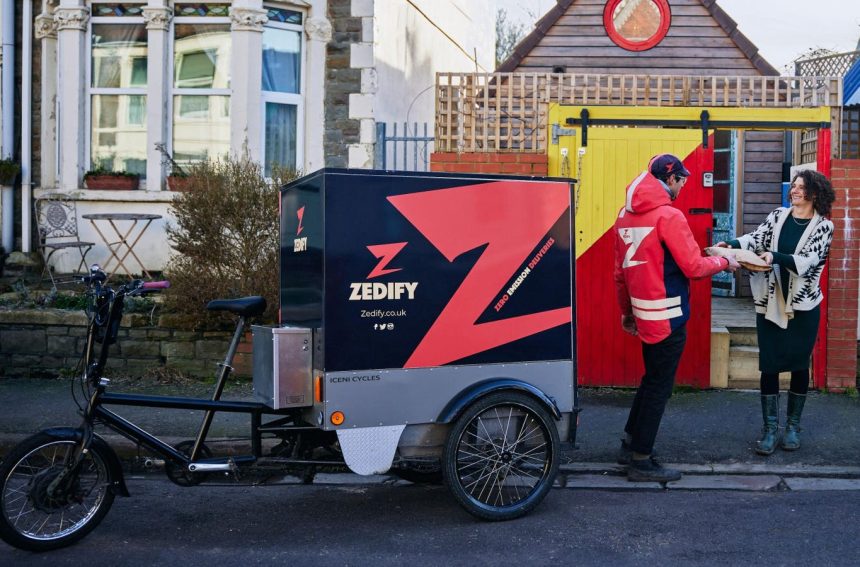Outspoken Logistics, operating under the brand name Zedify, a Cambridge-based company specializing in sustainable last-mile delivery services utilizing electric cargo bikes, has been placed into administration after experiencing a critical cash flow shortfall. This unfortunate turn of events comes despite significant investment totaling $11.5 million secured from prominent investors, including Barclays Sustainable Impact Capital, Mercia Ventures, Midlands Engine Investment Fund, and Green Angel Syndicate, just months prior to the administration announcement. The company had ambitious plans to expand its operations across the UK and establish a central logistics hub, anticipating a threefold increase in turnover. However, these projections failed to materialize, leading to the current financial crisis and the appointment of Will Wright and Steve Absolom of Interpath as joint administrators.
Zedify’s business model revolved around providing environmentally friendly delivery solutions for major retail brands such as Zara, Hello Fresh, and Selfridges. By employing a fleet of electric cargo bikes, the company aimed to reduce the carbon footprint associated with traditional van-based deliveries, capitalizing on the growing demand for sustainable logistics. The company operated through a network of hubs across several UK cities, including Cambridge, Edinburgh, Brighton, Bristol, Glasgow, London, Manchester, Plymouth, Norwich. While the initial funding rounds signaled confidence in Zedify’s approach and growth potential, the company’s inability to meet its projected targets ultimately led to its financial downfall.
The administration process has resulted in significant job losses, with 101 employees across multiple Zedify hubs being made redundant. Operations in Brighton, Bristol (independent company), Glasgow, London, Manchester, and Plymouth have ceased, while the Cambridge and Edinburgh hubs remain operational under the administrators’ supervision. Notably, the Norwich hub, operating under a franchise agreement, and the Bristol hub, run by a separate entity, remain unaffected by the administration process and continue to operate independently. This highlights the varied operational structures within the Zedify network, with some locations operating as independent or franchised entities separate from the core Outspoken Logistics business.
The administrators are actively seeking a buyer for Zedify’s business and assets to salvage the remaining operations and potentially preserve some of the remaining jobs. Key assets include the company’s fleet of electric cargo bikes, the intellectual property associated with their operation, and the established Zedify brand. The successful sale of these assets will be crucial in determining the long-term future of Zedify’s sustainable delivery model and the impact on the remaining employees. The administrators are exploring all viable options to maximize the value of the remaining assets and ensure the best possible outcome for creditors.
The downfall of Zedify raises crucial questions about the challenges faced by companies operating in the rapidly evolving last-mile delivery sector. While the demand for sustainable delivery solutions is undeniably growing, businesses need to navigate complex operational and financial landscapes to achieve long-term viability. Zedify’s situation underscores the importance of robust financial planning, accurate market projections, and effective execution to ensure that promising business models can translate into sustainable growth and profitability. The company’s inability to secure further funding despite significant initial investments highlights the competitive nature of the market and the need for businesses to demonstrate consistent progress towards their stated goals.
Zedify’s experience serves as a cautionary tale for other startups in the burgeoning sustainable logistics sector. While the company’s vision of environmentally responsible deliveries resonated with investors and clients alike, the ultimate failure to translate that vision into financial success underscores the complexities of scaling a business in this demanding industry. The focus now shifts to the administrators’ efforts to secure a buyer for the remaining assets, offering a glimmer of hope for the continuation of Zedify’s sustainable delivery model under new ownership and potentially preserving some jobs. The outcome will have significant implications for the remaining stakeholders and the wider landscape of sustainable last-mile delivery solutions.



